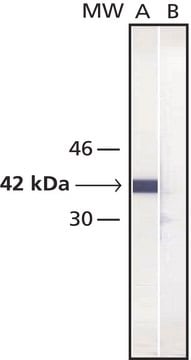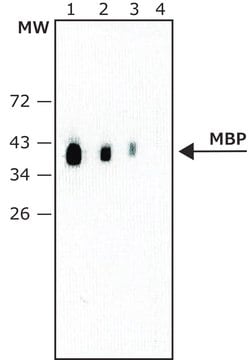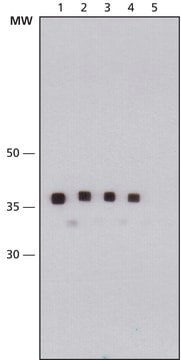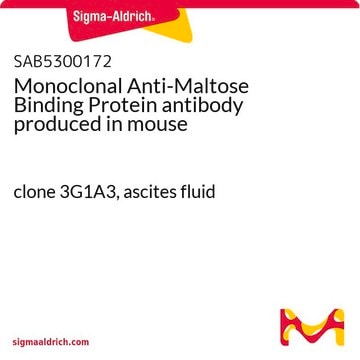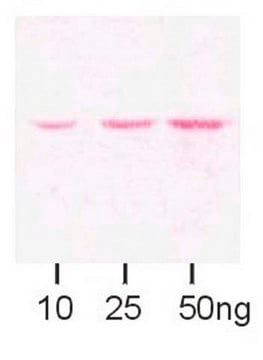A3963
Monoclonal Anti-Maltose Binding Protein−Alkaline Phosphatase antibody produced in mouse
clone MBP-17, purified immunoglobulin, buffered aqueous glycerol solution
Sinónimos:
Monoclonal Anti-Maltose Binding Protein, Anti-MBP
About This Item
Productos recomendados
biological source
mouse
conjugate
alkaline phosphatase conjugate
antibody form
purified immunoglobulin
antibody product type
primary antibodies
clone
MBP-17, monoclonal
form
buffered aqueous glycerol solution
technique(s)
western blot: 1:400 using using purified, recombinant MBP
isotype
IgG1
shipped in
wet ice
storage temp.
2-8°C
target post-translational modification
unmodified
¿Está buscando productos similares? Visita Guía de comparación de productos
General description
Immunogen
Application
Physical form
Disclaimer
¿No encuentra el producto adecuado?
Pruebe nuestro Herramienta de selección de productos.
related product
signalword
Danger
hcodes
Hazard Classifications
Eye Irrit. 2 - Resp. Sens. 1
Storage Class
10 - Combustible liquids
wgk_germany
WGK 2
flash_point_f
Not applicable
flash_point_c
Not applicable
ppe
Eyeshields, Faceshields, Gloves, type ABEK (EN14387) respirator filter
Certificados de análisis (COA)
Busque Certificados de análisis (COA) introduciendo el número de lote del producto. Los números de lote se encuentran en la etiqueta del producto después de las palabras «Lot» o «Batch»
¿Ya tiene este producto?
Encuentre la documentación para los productos que ha comprado recientemente en la Biblioteca de documentos.
Nuestro equipo de científicos tiene experiencia en todas las áreas de investigación: Ciencias de la vida, Ciencia de los materiales, Síntesis química, Cromatografía, Analítica y muchas otras.
Póngase en contacto con el Servicio técnico